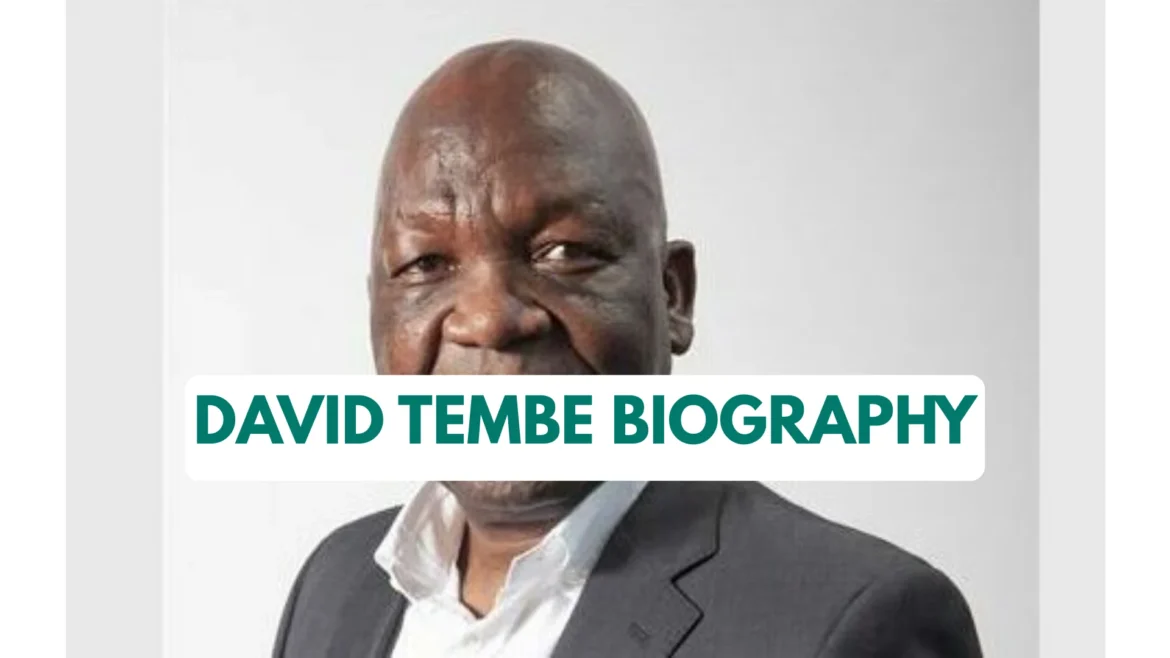David Tembe is a well-known figure in South African public safety — a career public-safety professional whose rise from an emergency services paramedic to senior leadership in Johannesburg’s policing and traffic services made him a visible name in efforts to restore law and order in South Africa’s largest city.
This biography explores his early life in emergency services, career milestones, notable achievements, public roles, controversies, and the legacy he’s building in urban safety and policing reform.
Early life and entry into public safety
David Tembe began his career in public safety in the early 1980s as a paramedic with the Johannesburg Emergency Medical Services (EMS). He steadily advanced through the ranks, developing operational skills in emergency response and training that later informed his leadership roles. His background in EMS and emergency management became the foundation for his later appointments in metropolitan and national traffic and policing bodies.
Rise through Johannesburg Emergency Services and JMPD
Tembe moved from EMS into broader public safety management, taking senior roles including Director of Operations for the Johannesburg Metropolitan Police Department (JMPD). During his time with the JMPD he was credited with overseeing large-scale expansions in traffic and metro policing operations and for operational innovations in enforcement and road safety. These achievements raised his profile as a practical manager capable of running complex enforcement departments.
National Chief of Traffic (RTMC) and national roles
In 2011 David Tembe was appointed National Chief of Traffic at the Road Traffic Management Corporation (RTMC), a national-level position responsible for traffic enforcement coordination and road-safety policy execution. He later resigned from the national post to pursue consultancy work in law enforcement and public safety, bringing his on-the-ground experience to private and municipal advisory roles.
Return to Johannesburg — JMPD chief and City MMC
Tembe returned to Johannesburg public safety leadership and, in early 2018, was appointed head of the Johannesburg Metro Police Department (JMPD). His tenure focused on rebuilding visible policing capacity, strengthening traffic law enforcement, expanding operations such as Buya Mthetho (a visible enforcement/disruption initiative), and improving coordination with city safety structures. Later he served as Johannesburg’s Member of the Mayoral Committee (MMC) for Community Safety under Mayor Mpho Phalatse’s administration, a political appointment that embedded his operational experience inside city governance.
Key achievements
- Operational expansion: Led or supported significant expansions in Johannesburg’s metro policing and traffic enforcement during his JMPD leadership and tenure in city government.
- Cross-agency experience: Held senior roles across emergency services, municipal policing and at the RTMC, giving him a rare cross-cutting view of city and national public safety systems.
- Policy and practice: Introduced or supported enforcement innovations that earned commendations from transport authorities and raised operational standards in traffic law enforcement.
Leadership style and public perception
David Tembe is often described in media and city communications as pragmatic, operationally focused, and results-driven. He draws heavily on frontline experience, which shaped a leadership style that prioritizes visible enforcement and practical coordination with other municipal services. As a public figure he’s been both praised for bringing discipline and criticized at times for the difficulties inherent in policing in a city with deep socio-economic challenges.
Political links and later moves
Tembe’s public roles intersected with politics. He was associated with ActionSA politics in Johannesburg and was appointed to mayoral roles under coalitions that sought to reshape the city’s safety agenda. In mid-2023 there were public notes about resignations and continued political engagement to focus on electoral work, reflecting how senior municipal safety roles sometimes move into overt political participation. :contentReference[oaicite:25]{index=25}
Challenges and controversies
Any senior public safety figure in a major city operates in a high-pressure environment. Tembe faced the complexities of crime, resource constraints, public scrutiny, and at times allegations and investigations typical of large enforcement agencies. His public statements sometimes referenced organized-crime concerns and internal reform needs — routine but politically-sensitive aspects of metropolitan policing
Legacy and influence
David Tembe’s legacy lies in operational reform and in a career arc that demonstrates the pathway from frontline emergency services to senior municipal and national roles. He represents a model of career public-safety professionals who leverage technical experience into administrative leadership. For Johannesburg and South African metro policing discourse, his tenure reinforced debates on visible enforcement, traffic safety priorities, and the challenges of scaling municipal security operations.
FAQ — Frequently asked questions about David Tembe
Who is David Tembe?
David Tembe is a South African public-safety professional who rose from EMS paramedic to senior roles including Director of Operations at the Johannesburg Metropolitan Police Department (JMPD) and National Chief of Traffic at the Road Traffic Management Corporation.
When did David Tembe head the JMPD?
He was appointed head of the JMPD in early January 2018 and served in high-level city safety roles around that period.
What other roles has he held?
Apart from JMPD leadership, Tembe served in EMS, the RTMC as National Chief of Traffic (appointed 2011), and later as a city MMC for Community Safety under Johannesburg’s mayoral committee.
Is David Tembe involved in politics?
He has had links to political structures and ActionSA, and his appointment as an MMC placed him within the political executive of Johannesburg’s municipal government.
What is his background in emergency services?
Tembe began as a paramedic in the Johannesburg Emergency Services (EMS) in 1981, and rose to superintendent and operational leadership roles before moving into metro policing and traffic management.
Conclusion
David Tembe’s career charts a practical path from emergency response to senior municipal and national public-safety leadership. His operational focus, experience across emergency services, traffic management and municipal policing, and later political engagement position him as an influential — if sometimes controversial — figure in Johannesburg’s efforts to manage crime and public safety. Whether judged by operational achievements or the broader debates his tenure touched, Tembe’s biography is an important case study in modern urban public-safety leadership in South Africa.




